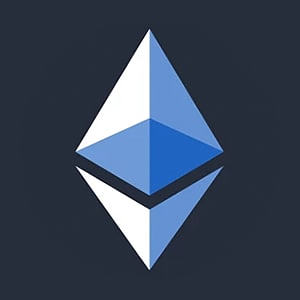Enterprise Ethereum matures, looks to open-source community for standards

Enterprise Ethereum has matured to the point where standards are now needed to ensure further growth and interoperability with other networks.
Ethereum is quickly becoming an integral part of the enterprise blockchain ecosystem. As more companies begin to leverage public networks for business, it’s important to keep in mind that the enterprise Ethereum space is still relatively new. Therefore, a number of developments are required before organizations can fully take advantage of the Ethereum blockchain.
For example, Dan Burnett, executive director of the Enterprise Ethereum Alliance — an initiative enabling organizations to adopt and use Ethereum technology in their daily business operations — told Cointelegraph that Ethereum is increasing in usage, deployment, application and more. As such, Ethereum is transforming into a solid chain for business.
Yet Burnett pointed out that standardization work has become increasingly important in order for Ethereum to fully mature. However, the challenge here is that standardization for enterprise Ethereum must take into account the open nature of Ethereum while considering proprietary business implementations.
Standards are required for enterprise Ethereum growth
In order to properly drive standards development for enterprise Ethereum, the Enterprise Ethereum Alliance (EEA) and Oasis Open — a body that aims to advance the development of open-source software and standards — announced today the formation of “EEA Community Projects.”
According to Burnett, EEA Community Projects was formed to bring together traditional standards development with standards that stem from open-source software. Burnett explained that the mix of these two development standards are necessary in order to accelerate enterprise Ethereum business adoption:
“With Ethereum, there has always been this interesting tension between the development community, which is open and individually driven, and the enterprise side, which is commercially driven and often deals with regulations and complexity. The EEA Community Projects is bringing together proprietary standards implementation with open-source standards that develop in the Ethereum community at large.”
Burnett further mentioned that the Ethereum Oasis Open Project, which is an Oasis Open initiative for multiple Ethereum projects, will now operate under the banner of EEA Community Projects.
Why standards are important
To put the need for standards into perspective, Burnett mentioned that one of the reasons why Ethereum has become so valuable is because no single entity controls the network. Yet as this value is realized, he noted, participants within the Ethereum ecosystem will likely partner with different entities to ensure interoperability.
Guy Martin, executive director of Oasis Open, told Cointelegraph that Baseline Protocol is an example of standards being used for interoperability. The Baseline Protocol works to coordinate confidential workflows among enterprises using messaging, zero-knowledge cryptography and the Ethereum blockchain.
Martin explained that Baseline essentially took its API and made that the framework for its standards to ensure interoperability between one computer language and another. Therefore, “it must be written in different languages and used in different environments.” He further added, “Standards is that template and agreement that allows interoperability and other things to happen.”
Although EEA Community Projects is just getting started, Burnett explained that the need for interoperability around layer-two scaling solutions has become apparent: “There are lots of layer-two solutions being built on top of Ethereum, and now there is increasing discussion for the need of some commonality there.” As such, Burnett predicts that standards for layer-two interoperability may be advanced as a result of EEA Community Projects.
Equally important, Burnett pointed out that the EEA Community Projects will not look to jeopardize what the Ethereum community has already been doing:
“We haven’t made governance changes that have decreased the openness, transparency and community-driven nature of the work. It took us a while to figure out how to ensure that all constituencies are happy and to make sure that no one is taking over the network or changing it in any way.”
With this in mind, it’s also important to understand why open source standards are necessary for the development of enterprise Ethereum. Anaïs Ofranc, lead for the Oasis Open Baseline Protocol standards and specifications working group, told Cointelegraph that open source is the most viable and credible way for the EEA to foster development and adoption of enterprise Ethereum — both on the technology and on the standard side:
“Open source lowers/removes the barriers to collaboration, so it is a great way to get input from a variety of actors, to explore various industry use cases, and to explore enterprise applications of Ethereum blockchain technology. It is also an effective way for the EEA to surface the work they have been doing.”
While Ofranc also pointed out that in order for open-source standards to be effective, the right contributors — both individuals and businesses — must be present: “There is so much competition for talents and experience in the blockchain space that contributors will need to justify the time and effort spent on working on enterprise-blockchain projects.”
Is enterprise Ethereum maturing?
Despite challenges that may arise with standard implementations, it’s notable that the enterprise Ethereum space is maturing to the point where standards are now required. Enterprise Ethereum standards will also likely be critical once Ethereum 2.0 is completed.
John Wolpert, chair of the technical steering committee at Baseline Protocol and vice-chair of the mainnet working group at EEA, elaborated on this point, telling Cointelegraph that the formation of EEA Community Projects is important since it demonstrates how the proper and practical use of Ethereum in enterprise is growing:
“Now we have a premier industry body working hand-in-glove with a premier IT standards organization and involving a wide community of individual and corporate-based developers and architects in establishing standards for verified multi-party workflows using the public Ethereum mainnet as a verification anchor.”
Moving forward, Burnett believes that the work done by EEA Community Projects has the potential to advance all the way to international standards bodies. “This provides a great opportunity for us to work at the grassroots level and then advance to a more corporate environment that larger enterprises would be comfortable with.”
Author

Cointelegraph Team
Cointelegraph
We are privileged enough to work with the best and brightest in Bitcoin.





